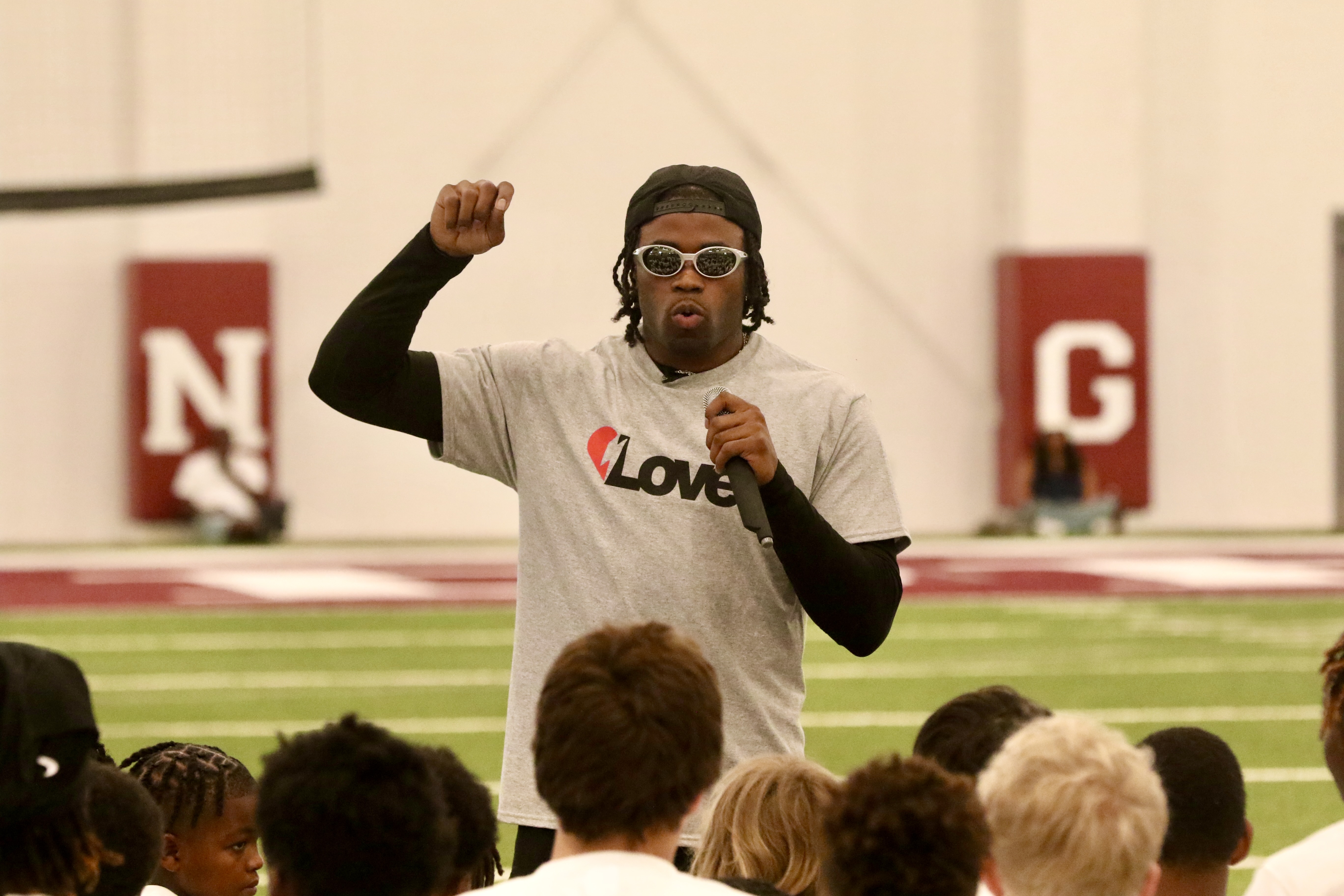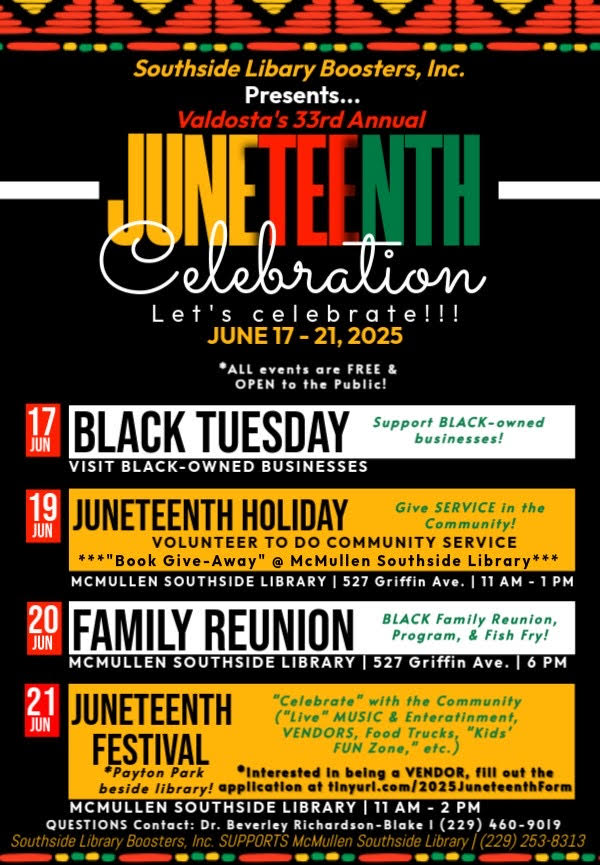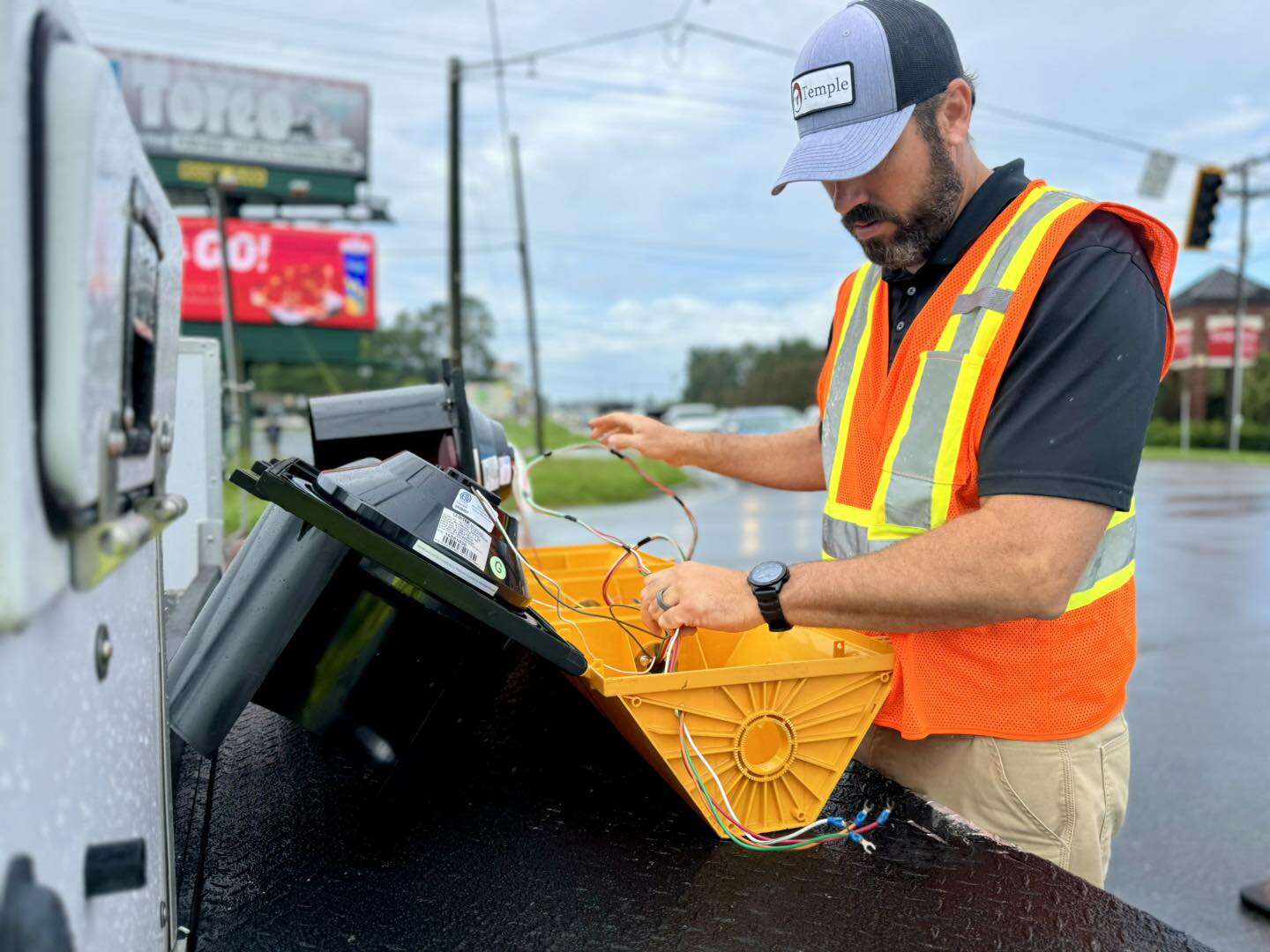Student wins suit against former VSU president
Published 11:07 pm Wednesday, September 8, 2010
A former Valdosta State University student has won a legal battle against past university president Dr. Ronald Zaccari.
The lawsuit stems from a 2007 incident involving a protest against proposed parking garages at Valdosta State University and the president’s decision to “administratively withdraw” the student leading the protest.
The federal court judge, Charles A. Pannell Jr., determined on Sept. 3, that Zaccari violated Hayden Barnes’ due process rights, with the former president being held personally liable for the damages.
The court also determined that the Board of Regents for the University System of Georgia violated a contract between Barnes and the board.
“Being president of Valdosta State University carried with it the awesome responsibility of looking out for the safety, welfare, and well-being of the thousands of students whose care was entrusted to us while at the same time fostering an environment of learning and achievement,” Zaccari said. “The action I took, coming less than three weeks after the tragedy of Virginia Tech, was solely motivated by my commitment to protect the safety of VSU students and the VSU campus.” The lawsuit was filed in early 2008, after Barnes was reinstated by the Board of Regents.
Within the lawsuit, filed Jan. 9, 2008, Barnes levied seven counts against the university, specific university personnel and the Board of Regents of the University System of Georgia, two of which were dismissed.
The remaining claims include liability regarding a free speech clause violation, liability regarding violation of substantive and procedural due process rights, breach of contract, an Americans with Disabilities Act claim, and Rehabilitation Act claim.
On Sept. 3, the judge dismissed VSU as a defendant in the action and cleared all other VSU personnel of any wrongdoing.
FROM CLASSROOM TO COURT
Barnes became a student at VSU in the fall of 2005, an enrollment that would end with the transfer student on academic probation. He would re-enroll in 2007.
During re-enrollment, Barnes contacted the VSU Access Office to register on-campus as a disabled student suffering from panic disorder and agoraphobia. Through this Barnes was permitted extra time for test-taking and authorized a private dorm room, according to court documents.
In the spring of 2007, Barnes was prompted to voice his displeasure about a proposed $30 million construction of parking decks on VSU by circulating information and flyers across campus.
Barnes felt the construction project could be damaging to the environment, also posting information about the subject on his Facebook account.
According to court documents, Barnes was notified by members of Students Against Violating the Environment (S.A.V.E.) in March of 2007 that Zaccari was upset with Barnes’ actions.
In response, Barnes removed the flyers and deleted entries on his Facebook page. The student also wrote a letter to Zaccari stating he would remove the flyers and did not want an adverse response to his actions, according to court documents.
Barnes continued to protest the development by creating a collage that contained images of a multi-level parking structure, a bull-dozer, a globe flattened tire tread, an asthma inhaler, a photo of Zaccari and a picture of a public bus with a red circle and slash across it. It also included slogans that stated “more smog,” “bus system that might have been,” “climate change statement for President Zaccari” and “S.A.V.E. — Zaccari Memorial Parking Garage.”
He also began contacting Board of Regents members when he learned they would vote on the proposed development at VSU in April of 2007.
According to court documents, one of the board members received an e-mail from Barnes, which she forwarded to Zaccari along with the concern that Barnes would show up at the board meeting. The board member requested that the possibility of a protest be handled at a campus level.
The day before the board meeting, Barnes met with Zaccari and Russ Mast, then the university’s dean of students. Zaccari expressed his displeasure with Barnes’ protest activities, according to court documents.
Following the meeting on April 19, 2007, The Spectator, the university’s student newspaper, published a letter written by Barnes, in which he expressed his views regarding the parking deck.
An investigation into Barnes quickly unfolded with Zaccari and other VSU administrative staff holding several meetings between April 20 and May 7, 2007, to discuss Barnes.
The meetings would include at various times Laverne Gaskins, in-house counsel, Kurt Keppler, then vice president for Student Affairs, Mast, and Leah McMillian, a counselor at VSU’s Student Counseling Center and a counselor in direct contact with Barnes.
Throughout all meetings in which McMillian attended, she repeatedly stated that Barnes was not a threat to himself or others, according to court documents. McMillian stated that she had “never at anytime observed any behaviors that warranted (her) being concerned that Mr. Barnes was a threat to himself or anyone else.”
During another meeting with Richard Lee, VSU assistant dean of students, and Keppler, none of Barnes’ activities were in violation of the VSU student code.
At an April staff meeting that included VSU Police Major Ann Farmer, Zaccari stated that an intruder had tripped the alarm at his home and that he had been receiving crank calls from a male caller at his home phone.
On April 26, 2007, in a meeting with Keppler, McMillian and Dr. Victor Morgan of the VSU counseling center, Zaccari reiterated his concern regarding Barnes and claimed he felt threatened for his own safety and for that of the VSU campus. He then discussed the possibility of using an “administrative withdrawal” to remove Barnes from campus, according to court documents.
During the meeting, Zaccari described Barnes’ collage as “an indirect threat” on him, but none of those in attendance expressed agreement with Zaccari’s concern.
In the court documents, Zaccari expressed his feelings of an “indirect threat” by stating that Barnes had posted comments about the president on his Facebook page and had posted an article regarding the mass shooting at Virginia Tech.
Morgan felt Barnes was not using memorial in a threatening manner but took it to mean “this is a building that is going to be designated with your name on it, that you’re going to be held responsible for the parking garage,” according to court documents.
The following day, Zaccari employed a personal security team from VSU police for protection as he felt Barnes would ultimately personally attack him.
In late April, Zaccari requested that Gaskins inquire about a student’s appeal rights if a university president files a complaint against a student for violation of the student code of conduct.
Gaskins contacted Elizabeth Neely, vice chancellor for legal affairs at the Board of Regents, who responded via e-mail, “In this case, the appeal should be directed straight to our office. It is not good practice for the president to be bringing a complaint against any student. That should be handled by staff in Student Affairs. Once the President has made a decision in the matter, there is no due process at the campus level.”
On May 2, 2007, Neely discussed various ways Barnes could be administratively withdrawn with Zaccari and Gaskins.
According to court documents, Gaskins expressed concern that any withdrawal might be in violation of his rights under the First Amendment, the due process clause and/or the Americans with Disabilities Act.
Later, Neely told Zaccari that he should focus on the safety of the campus and himself and “we’ll worry about the lawsuit later,” according to court documents.
During this time, McMillian continued to meet with Barnes, who was also seen by his psychiatrist in Savannah. During a session with McMillian on April 27, 2007, Barnes said that he had made no direct or indirect threats to (the) president and that he “would not harm self or others.”
On April 30, 2007, following a session with his psychiatrist, Barnes’ medication to target his symptoms of anxiety, depression and obsessiveness was increased. The psychiatrist also sent a letter to McMillian stating that “there was nothing during the interview that led me to think that (Barnes) was a danger to himself or others.”
During a May 3, 2007, meeting, Zaccari stated that under Board of Regents policy 1902, he had the authority to unilaterally decide to “withdraw any student from campus if he feels they pose a danger and that he planned to administratively withdraw Mr. Barnes.”
Both Keppler and Gaskins expressed concerns about the withdrawal during the meeting — Keppler on the grounds that the counseling center had given no reason to withdraw Barnes for mental-health reasons and Gaskins on the grounds that “a student accused of violating Board Policy 1902 is entitled to due process.”
On May 3, 2007, Zaccari directed Gaskins to draft the withdrawal notice. On the notice Gaskins reiterated that the student has a right to due process, the student be apprised of what particular policy has been violated, the student provided an opportunity to be heard and also informed of the appeal process.
The “administratively withdrawn” notice received by Barnes stated that to continue his enrollment at VSU he must submit a correspondence from a non-university appointed psychiatrist indicating that he was not a danger to himself or others and documentation from a certified mental health professional indicating that, during his time at VSU, Barnes would receive ongoing therapy.
Within one day, Barnes filed for reinstatement in accordance with the requirements; however, Zaccari determined that Barnes remained a danger to the VSU campus.
On May 9, Barnes was notified that he had 48 hours to vacate his residence hall room.
DUE PROCESS
In January 2008, Barnes gained one a small victory when the Board of Regents reversed the expulsion made by Zaccari, following an appeal by Barnes.
The reversal came one week after Barnes filed the federal lawsuit alleging constitutional violations. The recent ruling in the lawsuit does not resolve issues of material fact but determines whether there are issues to be tried.
In Barnes’ lawsuit, he files charges of free speech and due process rights violations against McMillian.
Barnes argued that the sensitive mental health information provided by McMillian to Zaccari “became the linchpin of Zaccari’s rationale for withdrawing Barnes,” according to court documents.
For both claims, the judge ruled in favor of McMillian.
The court also determined that Barnes did not produce any evidence to support the claim that McMillian or any other defendant, Zaccari, Mast, Keppler or Gaskins conspired to violate Barnes’ rights or to retaliate against Barnes for his use of his First Amendment rights.
Barnes’ claim that the defendants violated his due process rights ruled in favor of the defendants as well.
Regarding the two counts Barnes filed claiming discrimination under ADA and the Rehabilitation Act — Barnes had to demonstrate that he fits the criteria outlined by ADA — the court determined that Barnes failed to offer enough evidence in the ADA and Rehabilitation Act claim and denied him a ruling in his favor.
The court did determine that Barnes’ procedural due process rights were violated by Zaccari.
According to court documents, “The undisputed facts in this case show that prior to Zaccari’s withdrawal decision, Barnes did not (a) receive any notice of the allegations and charges against him or (b) have an opportunity to respond to those allegations and charges in some sort of hearing.”
The court ruled that Zaccari was the sole decision maker in the withdrawal decision, causing Barnes to be deprived of his rights to notice and a hearing or an opportunity to respond.
A breach-of-contract claim against the Board of Regents was ruled in Barnes’ favor. The court determined that the VSU student handbook, with rules outlined by the Board of Regents, which Barnes agreed to follow and tuition paid to attend the institution, constituted a contract between the board and Barnes, according to court documents.
When the Board of Regents failed to provide Barnes with a procedural processes outline in the handbook prior to his withdrawal that constituted a breach in the contract, the court ruled.
“I am pleased to learn that the judge has ruled in favor of us on almost every claim,” Zaccari said. “Judge Pannell dismissed all claims against VSU and the other university officials, who should never have been sued in the first place. He ruled in my favor on all claims except one — a claim involving procedural due process. The court dismissed the student’s claims under the First Amendment and Americans with Disabilities Act.”
The next step in the lawsuit, having resolved all claims, is determining the damages. In a press release dated Sept. 4, 2010, Barnes said he was pleased with Pannell’s ruling and was evaluating his next step with his legal team.
“… I appreciate the time that the court has devoted to understanding the situation with which I was faced,” Zaccari said. “I look forward to what I hope will be a final resolution of the remaining claim in my favor.”





